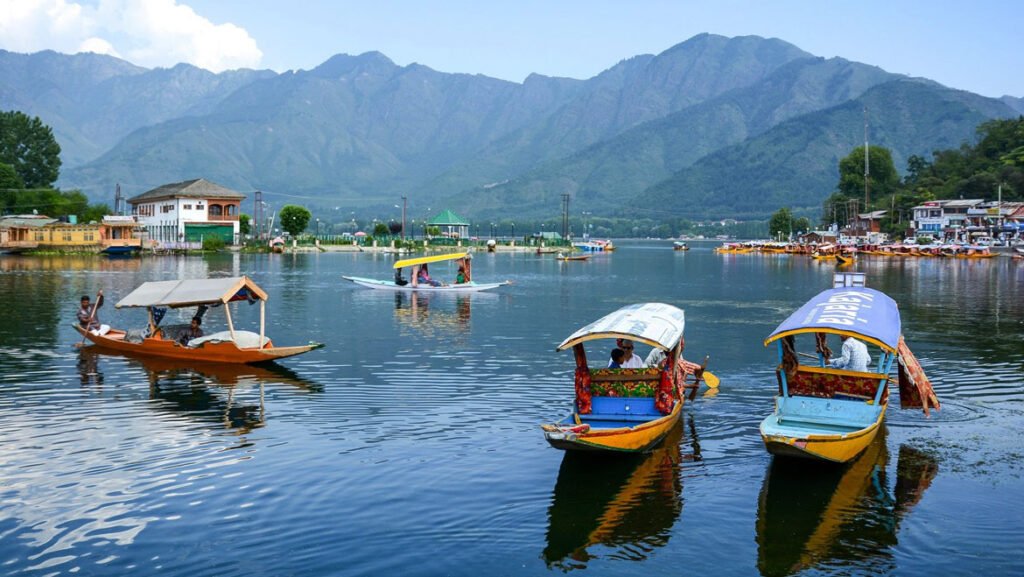
Till August 5, 2019, Jammu & Kashmir was like no other state of the country, and its rulers considered them a breed apart, a law unto themselves. The state had a Constitution of its own, courtesy of Article 370, and many state politicians claimed this meant that it had a sovereignty of its own. Furthermore, these politicians claimed that this sovereignty kept J&K beyond the pale of the Indian Constitution.
The inclusion of Article 35-A in the Constitution on May 14, 1954, further strengthened this line of thought and supported this narrative. Thereafter, the democratically elected representatives of J&K resorted to many practices that bypassed the national Constitution. At least one practice, treating Male Permanent Residents and Female Permanent Residents, differently, was gender-discriminatory and hence unconstitutional. This practice violated the Preamble of the Constitution itself as no gender discrimination is allowed under the Indian Constitution.
The Supreme Court, in its verdict, held that the accession of J&K with India in October 1947 was similar to that of other princely states. It said that the document it had signed to join India was similar to the one signed by over five hundred and fifty other kingdoms and principalities after the end of the British Raj’s paramountcy. So, there was no question of the state of Jammu & Kashmir having any internal sovereignty.
The MLAs (Members of Legislative Assembly) of the J&K assembly considered themselves extraordinarily powerful. This belief sprang from the fact that they could easily block or stop any law passed by the Indian Parliament from becoming law in J&K. They could modify or even reject the Indian laws at their whim and fancy. They exercised all these unlimited prerogatives, thus cocking a snook at the Central government as also at Parliament.
All these things fostered the notion of a “special status’’ which was assiduously fanned by a wide section of politicians of different hues in J&K, barring the Praja Parishad (PP) led by Pandit Prem Nath Dogra and the Bharatiya Jan Sangh (BJS) led by Shyama Prasad Mukherjee. The votaries of a special status created a separate state flag on June 7, 1952, as also a separate Constitution for J&K. This was strongly opposed by Pandit Dogra and the BJS chief who vociferously argued for “Ek Desh, Ek Vidhan, Ek Pradhan’’.
In the apex court verdict, the petitioners were soundly disabused of the idea of any sovereignty vesting with J&K. Some petitioners had claimed that Jammu & Kashmir’s autonomy was significant in that it set the state apart from others like Punjab, Haryana or Rajasthan. This notion was outright rejected by the apex court. “Asymmetric federalism allows for the possibility of one state having more autonomy than another. This does not imply that its autonomy is different,’’ Chief Justice D Y Chandrachud observed.
As long as Article 370 and Article 35-A were in place, too many powers were vested in the legislators of J&K. With these articles gone for good now, after the Supreme Court verdict upholding their abrogation, it will be a much-diminished legislature that will come into being. Commenting on the apex court verdict, Prime Minister Narendra Modi wrote: “In very basic words, Articles 370 and 35-A were like major obstacles. It seemed like an unbreakable wall and the sufferers were the poor and the downtrodden.’’ He further said: “Due to these articles, a distance was created between people belonging to the same nation.’’
The poor and the downtrodden Modi referred to were hapless West Pakistani refugees, Valmikis, Gorkhas, and women who faced rampant discrimination. These disempowered people got all the rights available to ordinary Indian citizens only when the separate Constitution of J&K was nullified. Besides these groups, Schedule Tribes (STs) living in J&K got political representation after the abolition of these two articles.
What Next?
Commenting on the bifurcation of the state into two Union Territories (UTs), the apex court has said there was nothing wrong with that action. While upholding that action as valid, the court said that statehood should be restored to J&K. Further, it also wanted elections held for the J&K assembly by September 2024. This means that the Union Territory (UT) of Ladakh will stay as it is, and will be governed by the Centre directly. However, the Centre will need to make the UT of J&K a state again, something the Union Home Minister had committed to do in August 2019.
As and when the statehood is restored to J&K, it will be a pale shadow of its previous status in more than one sense. In terms of territories, it has shrunk because of Ladakh being carved out as a separate UT. Besides, it is unlikely to be a full-fledged state like others, say Uttar Pradesh or Madhya Pradesh.
The Central government had downgraded it to the level of a UT in 2019 and thereafter governed it directly. For the foreseeable future, even when elections are held for the J&K assembly, it is unlikely to come out of control of the Central government. Realistically speaking, J&K may be made into a state by the Centre but it is going to be a state more or less like Delhi, or Puducherry.
My sincere advice to a section of people of Jammu & Kashmir who are not happy with this judgment is that “they should accept the inevitable’’, Dr Karan Singh, a senior Congress leader, said. It is worth mentioning here that Karan Singh, son of Maharaja Hari Singh who had signed the accession of his state to India in October 1947, has been quoted in the judgment.
Regarding the full application of the Indian Constitution to J&K, CJI Chandrachud relied on a proclamation issued by Yuvraj Karan Singh, as Sadr e Riyasat of J&K, in November 1949. This proclamation stated that the provisions of the Indian Constitution would thenceforth govern the relationship between J&K and India.






Solid advice. Echoes content on my page – https://boomerangcasino-de.top/.